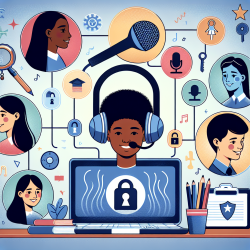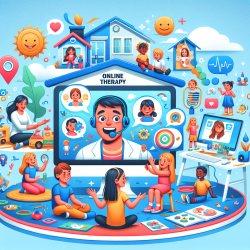In the ever-evolving landscape of educational support, school social workers often find themselves at the forefront of addressing complex emotional and social issues faced by students. The added challenge of limited resources and increasing caseloads can leave many feeling overwhelmed and, at times, lost. However, virtual therapy services offer a beacon of hope, providing a comprehensive and accessible solution to these pressing challenges.
Virtual therapy, also known as teletherapy, leverages technology to deliver therapeutic services remotely. This approach has gained significant traction, especially in the wake of the COVID-19 pandemic, which necessitated a shift to online platforms for many services. Companies like TinyEYE have been at the forefront of this transformation, offering specialized online therapy services to schools. This blog aims to inform school social workers about the benefits and practicalities of integrating virtual therapy into their support strategies.
Why Virtual Therapy?
Virtual therapy provides several key advantages that can significantly enhance the effectiveness of school social workers:
- Accessibility: Virtual therapy removes geographical barriers, ensuring that students in remote or underserved areas have access to essential therapeutic services.
- Flexibility: Online sessions can be scheduled at convenient times, reducing the disruption to students' academic schedules and allowing for more consistent support.
- Cost-Effectiveness: By eliminating the need for physical space and travel, virtual therapy can be a more economical option for schools with tight budgets.
- Specialized Services: Companies like TinyEYE offer specialized services, including speech therapy evaluation and speech therapy telepractice, tailored to meet the specific needs of students.
Implementing Virtual Therapy in Schools
For school social workers considering the integration of virtual therapy, here are some practical steps to ensure a smooth and effective implementation:
- Assess Needs: Begin by identifying the specific needs of your student population. Determine which students would benefit most from virtual therapy and what types of services are required.
- Partner with Reputable Providers: Collaborate with established providers like TinyEYE, who have a proven track record in delivering high-quality online therapy services.
- Ensure Technological Readiness: Ensure that both students and staff have access to the necessary technology and are comfortable using it. Provide training and support as needed.
- Monitor and Evaluate: Continuously monitor the effectiveness of the virtual therapy services. Collect feedback from students, parents, and teachers to make necessary adjustments and improvements.
Case Study: Success with TinyEYE
To illustrate the impact of virtual therapy, consider the following case study from a school that partnered with TinyEYE:
In a rural school district, students were struggling with limited access to speech therapy services. Traditional in-person therapy was not feasible due to the remote location and lack of available specialists. The school social worker decided to explore virtual therapy as a solution. After partnering with TinyEYE, they were able to provide consistent speech therapy evaluation and telepractice sessions to students in need. The results were remarkable – students showed significant improvements in their speech and communication skills, and the school social worker reported a reduction in overall stress and workload.
Conclusion
Virtual therapy offers a viable and effective solution for school social workers navigating the complexities of student support in today's challenging environment. By leveraging technology, schools can provide accessible, flexible, and specialized services that meet the diverse needs of their students. As demonstrated by the success stories of schools partnering with providers like TinyEYE, virtual therapy has the potential to transform the landscape of educational support, ensuring that no student feels lost or left behind.
For more information on how TinyEYE can assist your school in implementing virtual therapy services, please visit our website or contact us directly.










